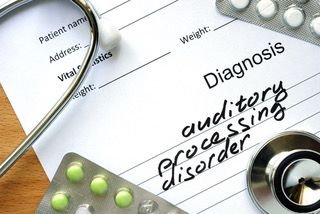Blog
Blog
Have your Kids tested for Auditory Processing Disorder

Now that the kids are back in school, it’s important to make sure that they’re getting the support they need to succeed.
If your child is having trouble understanding speech or other types of sounds, you should take them to a hearing clinic that offers auditory processing assessments. Auditory Processing Disorder (APD) affects 5 per cent of school-age children and can negatively impact a child’s ability to thrive in a traditional classroom.
What is Auditory Processing Disorder?
Auditory Processing Disorder, also known as Central Auditory Processing Disorder (CAPD), affect how a person hears and interprets sounds, especially speech. People with APD can hear loudly enough, but they struggle to process auditory information because their brain and ears aren’t fully coordinated.
When undiagnosed, APD can cause children to experience speech and language delays, struggle in school and have problems connecting with their peers. With an early diagnosis, however, they can learn skills and strategies for coping with APD to minimize its impact on their lives.
Signs and symptoms
The symptoms of APD are similar to those of learning disabilities and Attention Deficit Hyperactivity Disorder (ADHD). Some common signs of APD include:
- Reading and spelling difficulties
- Trouble distinguishing between similar sounds and words
- Difficulty paying attention and staying on task
- Trouble understanding speech or concentrating when there’s a lot of background noise
- A history of ear infections, hearing loss or upper respiratory problems like allergies, sinus infections, colds or adenoid problems
The cause of APD is usually unknown. However, evidence suggests that head trauma, lead poisoning and chronic ear infections can sometimes play a role.
Diagnosis and treatment
If you suspect your child has APD, an audiologist will perform a series of audiometric tests. The tests will show whether your child has difficulty concentrating with background noise, remembering auditory information, distinguishing between sounds and focusing on listening-based activities. At the Soundwave Hearing Clinic, the tests take two hours.
How to help children at home and at school
Audiologists will work with your family to show you the best ways to support a child with APD. Some steps you can take at home include covering hardwood floors to reduce echoes and limiting the use of TV and other noisy electronics.
You should also talk to your child’s teachers about the diagnosis. Note that in Alberta, all children diagnosed with APD have the opportunity to work with an education audiologist to help them succeed in school, should they need extra support.
Hearing solutions in the Calgary area
At Soundwave Hearing Clinic, our experienced audiologists will evaluate whether your child has APD or if they need hearing aids to cope with another type of hearing impairment. To make an appointment at one of our clinics in Calgary, Lethbridge, High River or Grande Prairie, contact us today.
All the blogs are reviewed and edited by our clinic's lead audiologist, Dr. Anne Wooliams. Dr. Woolliams is an experienced audiologist specialized in pediatric audiology, auditory processing, and tinnitus/sound sensitivity therapy. She is dedicated to providing top-notch hearing care and helping her clients improve their language and communication abilities. Dr. Woolliams' expertise in literature and linguistics, combined with her passion for helping people improve their language and communication, make her an incredibly valuable asset in the field of audiology. Learn more about Dr. Woolliams.
